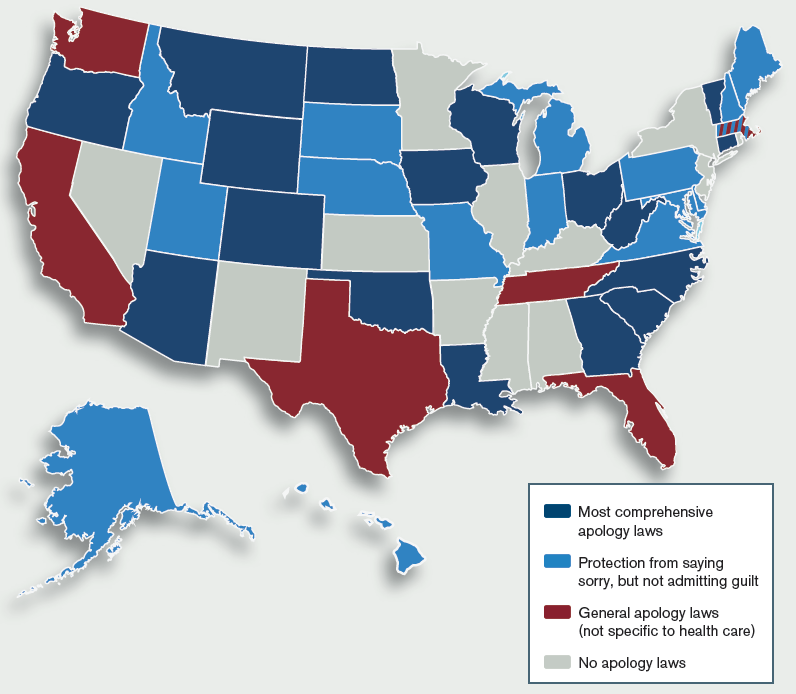Explore This Issue
ACEP Now: Vol 40 – No 11 – November 2021Figure 1: “I’m Sorry” Laws by State. Chris Whissen & Shuttestock.com
I have always strived to apologize when I thought someone was harmed by my actions. This is a lesson taught to children from their earliest days. When children begin to understand right from wrong, a parent will frequently ask the child to say, “I’m sorry,” as part of this developmental process. As children grow and mature, the hope is that they will initiate this behavior on their own. As adults, we begin to say we are sorry for many events, such as loss of a loved one or other tragedies in people’s lives.
This process and basic human quality are unfortunately flipped on their head in the medical world and in the emergency departments in which we all work.
When in the emergency department providing medical care, our human tendency to say we are sorry for tragic events is frequently restrained by the fear of litigation. We ask ourselves, “If I say I am sorry, will they think I am admitting guilt and sue me? Can they use this apology against me in court? Will hospital administration get mad at me for saying I’m sorry?” The questions and anxiety surrounding this can be paralyzing and prevent us from doing what is very likely the right thing. Fortunately, most states have enacted laws to protect the physician saying, “I’m sorry.” They have variable protection, and knowing your state law is crucial. Also, there are institutions such as the Veterans Administration in Lexington, Kentucky, and University of Michigan that have full disclosure of error programs that involve apologizing for the error, root cause analysis on how it happened to prevent future errors, and offer of settlement. However, not all agree that apology laws make a significant decrease in litigation, and some say they can actually increase the incentive to sue when the patients hear the apology and think the clinician has committed malpractice.1,2
Medical malpractice rules are almost entirely based on state law because the litigation is done in state courts unless a federal statute is violated. Knowing the laws and practice patterns of your state(s) of practice is critical to understanding your protection around apology laws. The state laws really fall into four general categories: total protection, partial protection, general apology statutes, and no protection.3 We will explore the differences in these categories and discuss the relevant clinical implications of them. Please remember to consult local legal experts for the details on how the written law is applied in your state jurisdiction.
Pages: 1 2 3 4 | Single Page




No Responses to “Several States Protect Physicians Who Apologize, But Be Careful”